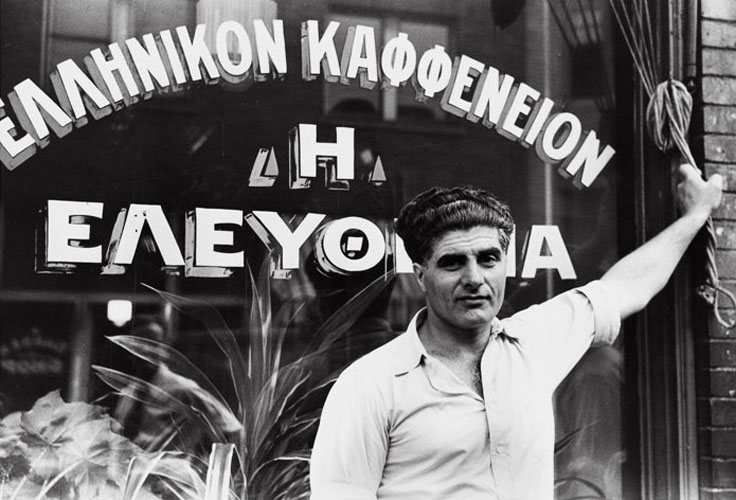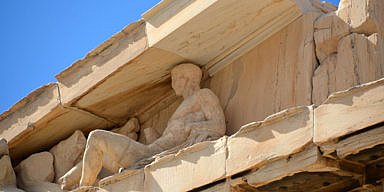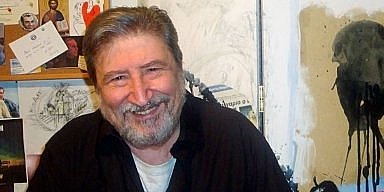COFFEE ANYONE? (KAIVES)
I’m nested in my chair in the back of my house facing South East. This spot was carefully selected by wife and daughters as the only place I could enjoy a cigarette so that the smoke would go in a certain direction away from the house. Once airborne it would become a cloud and the winds would take it out high above the Atlantic Ocean where it would mix with the smoke of others not allowed to smoke indoors, become toxic and pour acid rain on a foreign country.
I used to light up in my garage but the smoke particles according to the sheriff and the two deputies would make their way into the dining room, kitchen and contaminate the curtains on the second floor. Like hounds on a coon hunt I could see them through the window with noses in the upright position sniffing the air and detecting the smell of my cigarettes. I don’t know about you but I miss the good old days when we used to light up on Olympic Airways on the way to Greece. I will never forget the time the Greek pilot asked for my lighter so he could light a cigarette. That white mass you saw out of the plane window, no those weren’t clouds, it was all the smoke that had escaped the plane.
So I’m sipping my Lavazza coffee (black of course) cigarette in one hand, Ipod in the other scrolling down my playlist and I get to “K’ Katsimixa, Kana, Kalimerh… Kontogiannis, yes I haven’t listened to one of my favorites for a while. Dimitris Kontogiannis is singing Nikolopoulo “ti’nai arage o kafes Tourkikos Ellinas ah vres” and I ask myself why is the coffee sometimes called “Ellhnikos” and others “Tourkikos”?
At work the very next day I’m thinking about this coffee thing so I google Greek and Turkish coffee but give up within 10 seconds because I’M GREEK! (Just kidding).
I can’t find what I’m looking for so what do I do? Don’t you know it, pulling up to my store in his Prius is a good friend (who’s name I won’t reveal). This guy knows everything. OK nobody knows everything but if this guy doesn’t know something he knows where to find it. My Mom always used to say “Costa hang out with smarter people because you will grow as a person and become a better human being. The first (hanging out with better people than me) is very easy to do so I always try to practice it. The second (so that I become a better person) I’m still working on. So not wasting any time I ask him “where can I find information on Turkish coffee I don’t want just historical facts but more of how coffee evolved and my friend says” Tourkikos kafes en Elladi” a book written by Elias Petropoulos. I press him for more information. but Panathinaikos had not scored two Sundays in a row and the disappointment in his face was obvious “Tourkikos kafes en Elladi” he says again with a smile and walks over to the table where he meets up with other academics to discuss whatever those smarter than me talk about.
So I look up“Tourkikos kafes en Elladi” and for those of you who finished Greek school under Mr. Polemis at St. Demetrios in Upper Darby, check out this interesting link: VIDEO
Those of you who didn’t go to Greek school and were allowed by your parents to play a team sport in school but now hear a joke in Greek and turn to your friend and ask “what did he say”? as others are on the floor laughing read on.
Our grandparents drank Turkish coffee in the old country but with the invasion of Cyprus by the Turks in 74’ patriotism rose to 1821 levels and anything that had the word “Turkish” in it became Greek. Waiters at Greek coffee shops would say :”Greek” if one dared to order Turkish.coffee Starting your day off with Turkish coffee was an anathema so just like that, overnight it became Greek.
Remember “freedom fries” anyone? Mr. Petropoulos in his book is quick to point out that the words : kafenes, kafetzhs, briki, flitzani etc. are all words of Turkish origin.
The barista of the time was called “Tampis”. This was the guy who would custom make the coffee shouted out by the waiter”.enan metrio se xontro me kaimaki” and the Tampi behind the counter would prepare the coffee and pour it carefully in an up and down motion using the “briki” so the coffee would create bubbles and the proper “kaimaki” (the thick layer created on the surface of the coffee). “Xontro” and “psilo” refer to how thick the sidewalls of the coffee cup were. If there was a mistake and the coffee was poured in a “psilo” flytzani instead of a xontro the coffee would not only be returned but a scene would follow.
At Starbucks if the customer wants non-fat goat’s milk (instead of 2% ) the barista smiles and says “no problem” and quickly rushes to correct his/her coffee. In Greece at times past if the coffee took too long the customer would yell out “kokalla exei o kafes”? Then again I don’t know of any other culture that has so many songs written about coffee “ftiaxe mou enan kafe” sang Stratos Dionysiou.
“Molis xypnhsw to prwi ta vlepw olla mavra, “thelw mia koupa me kafe kai tessera tsigara” sang Nikos Papazoglou. Yes indeed, the only thing that outnumbers coffee songs are songs about cigarettes and those are not even the obvious songs everyone knows a “anapse to tsigaro dos mou fotia” and “ afto to tsigaro pou kei einai to teleutaio”
And here you thought that those in line at a Starbucks were particular about their coffee, “enan varyyy glykoooo se psilo xoris kaimaki” the waiter would yell out. Did you know that there are over 40 different combinations in the preparation of Greek coffee?
The coffee was made in a “briki” and there was an art it’s preparation. The water used had to be very hot (not boiling) and it was stirred with a little stick. The spoon used was metal and had this odd shape and a long handle. Another interesting thing is that it wouldn’t hold more than ½ teaspoon so you would see the guy making the coffee dropping 6 or eight tiny spoonfuls of coffee into the briki. Why was it so small? I think it’s because coffee was expensive and if you accidentally dropped the spoon you wouldn’t loose much So once the hot water was poured then the coffee and sugar were added. The briki would then be put in this sand mixture (xobolh) where it would be stirred first slowly and then a little faster all while moving the briki in the sand. This was done to give the coffee body and to make sure it wouldn’t cook too fast, you needed at least 15 minutes of preparation for a proper coffee.
In Turkey (and by Turkey I’m talking about the mainland and not the cosmopolitan western cities of Istanbul and Ismir) coffee takes on a whole new meaning. Ted Kostans (you know him, he takes pictures at Greek festivals, baptisms and weddings) says that during his travels to Asia Minor what he saw was people drinking tea and not coffee. Hmmm why is that? I get on the phone and call my Turkish “kardas” and ask why don’t Turks drink coffee. As it turns out coffee in Turkey is reserved for special occasions. You drink coffee when you want to discuss a serious matter with a friend or if you go to ask a young lady’s hand in marriage (correction: your father asks her father and you have no idea of what exactly is going on). So coffee creates a bond between those who drink it together. “How could you do this to me, we have had coffee together” is a Turkish saying if things go sour between two friends, business associates or… ..the In-laws.
Tea is cheaper than coffee and a lot easier to prepare. You have one kettle with hot water and one smaller one with tea on steroids. You pour a little tea concentrate and fill the rest of the clear glass cup with boiling water and unlike Turkish coffee where you must make them one at a time you can treat 10 guests in a matter of minutes if you serve tea.
Then there’s the “reading of the cup” oh yea. You would leave a tiny bit of coffee in your flytzani and you would shake it a little. Then you would quickly flip it over on your saucer and wait for a few minutes. Now most likely the person doing the reading was a neighbor who knew more about you than you did so if your kid was leaving Greece to come to America in a month or two the woman doing the “cup reading” would say stuff like “vlepw enan dromo” really? If your daughter was engaged to be married then she would point to a little spot in the coffee cup and say things like “erxetai xara”. You get the idea.
Anyway enough about coffee, next time we will look into the Yeerroo or Gyro for those of you who prefer lattes instead of Turkish coffee.



